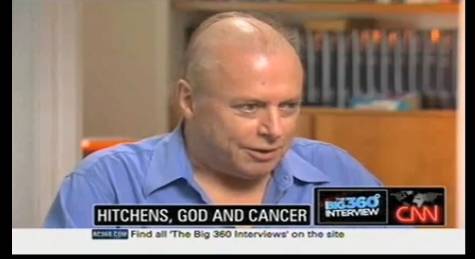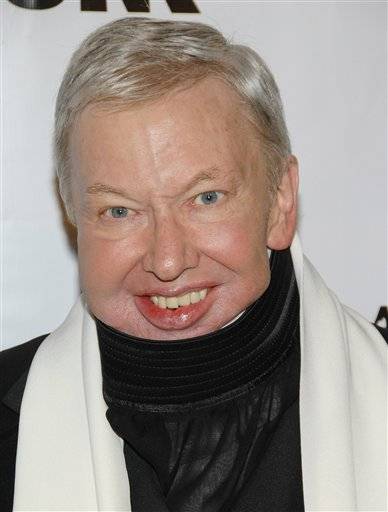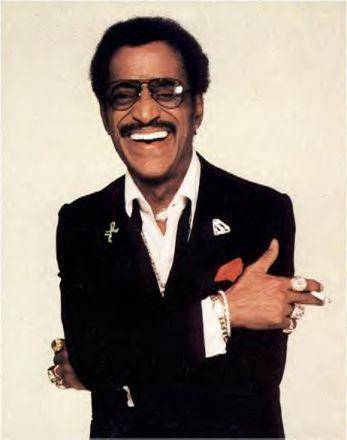To beat the rush, I submit my Christopher Hitchens obituary prematurely.
It’s no big deal for either of us. Hitchens and I have both been asked, by serious editors of serious news organizations, to write obits of living people. I did it for NPR. He did it for The New Statesman.
He divulges this assignment in Hitch-22, which opens and closes with Hitchens’ tale of the first premature report of his death. Seeing his visage captioned “the late Christopher Hitchens” gave him pause for thought.

These days, he’s thinking about his death all the time, greatly exaggerated or otherwise.
Esophageal cancer metastasized to Hitchens lymph nodes and lungs before he noticed feeling ill. Statistical evidence says he won’t survive five years.
It’s a bad way to go, but I — as a Hitchens fan — am thankful: He will die of a disease that science promised him.
Hitchens’ dad died of the same disease. Heredity is a persuasive predictor.
On top of that, Hitchens spent the better part of four decades pelting his throat with Johnnie Walker Black and Players Navy Cut. (If you choose to drink and smoke I highly recommend this combination.)
Hard liquor and cigarettes, combined, initiate entrée to the Head & Neck Cancer Club. Roger Ebert could tell you about that. Or rather, he couldn’t.
No v engeful sky g
engeful sky g od could smite a freethinker so predictably.
od could smite a freethinker so predictably.
Rumor says Sammy Davis, Jr. chose death over the Ebert Treatment. “Not without the voice, baby” or something along those lines.
It’s hard to imagine Christopher Hitchens without his mellifluous baritone.
I prefer audiobooks to bookbooks for a lot of reasons. I’ve “read” about 20 titles in the last month, and I accomplished a lot of chores in the meantime. I ran about 25 miles per week simultaneously. I rehabbed a couple of old desktops computers. I organized the basement.
But that’s the utilitarian argument for audiobooks. The arty argument is persuasive.
When an author like Hitchens reads his own work, the emphases land properly. The pronunciations fall within the author’s particular milieu. (Hitchens invariably gives junta a hard J; and given his career, “junta” comes up a lot. Intriguingly, he pronounces machismo as do the Spanish, and not the English.)
THE BOTTLE
To share new perspectives, a thinker must first achieve a new perspective. Traveling to a distant land is a traditional method. One sees mundane things differently — sewage systems, cooking, parliamentary democracy.
People like to travel from sobriety, too. On returning, the interesting ones usually have a better appreciation of reality.
Thus, the second reason I’m grateful for Hitchens Dionysian sacrifice:
Without drinking and smoking, Christopher Hitchens would have been average. As he points out in Hitch-22, booze provokes poetry. There are plenty of earnest, temperate intellectuals living anonymous to C-list existences inside the Beltway.
Apart from its curative properties versus writer’s block, booze is truth serum. In that sense, drinking and writing can be dangerous. Just look at the comments — and possibly some of the columns — right here on SP.
No subsequent apology alters the fact: You meant what you said. You really meant it.
Among my 20 books I absorbed two lushes memoirs, packed with regrets for which the rest of us can be thankful. I strongly recommend Craig Ferguson’s American on Purpose. I enjoyed Tom Davis’s 39 Years of Short-Term Memory Loss. Both comedians are geniuses. Both are alcoholics. I don’t think it’s possible to separate the two characteristics.
THE LEFT
Hitchens predicts some crazed faithfuls will conceive and proclaim his deathbed conversion. But Hitchens never changed positions about anything. People make the Goldwater mistake about him, but he never left the party. At some point he recognized the party never held the principles he continues to hold.
That may be the most important idea in Hitch-22, and possibly of our age. Just because “your” party is doing it, it may still be bad. Even if the “other” party is doing it, it may be good. If you get all your news from HuffPo or Fox, you have this problem.
Hitchens may be a polemicist, but he never stops reminding us to think for ourselves.
He’ll be the first Great American of the 21st century to die. Or the first Great 21st Century American. I’m not quite sure how to articulate this point. Rearrange the terms as you like.
He won this race with a bit of trickery. By traditional methods, he’d be measured a 20th centurion. But Hitchens has been American for only a few years.
And yet he’s far more American than most of us.
Thanks, Hitch.








